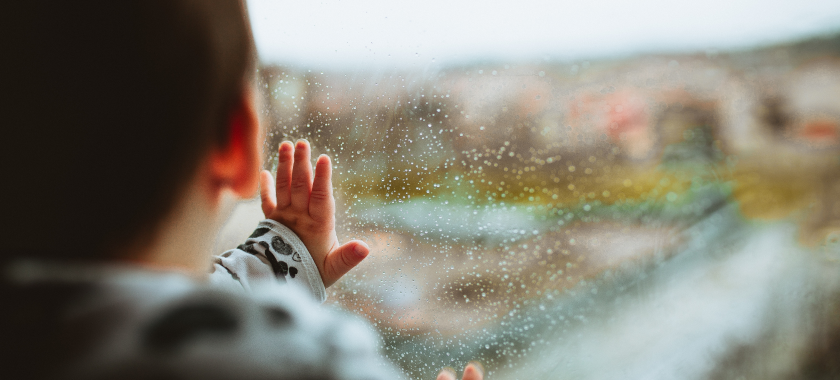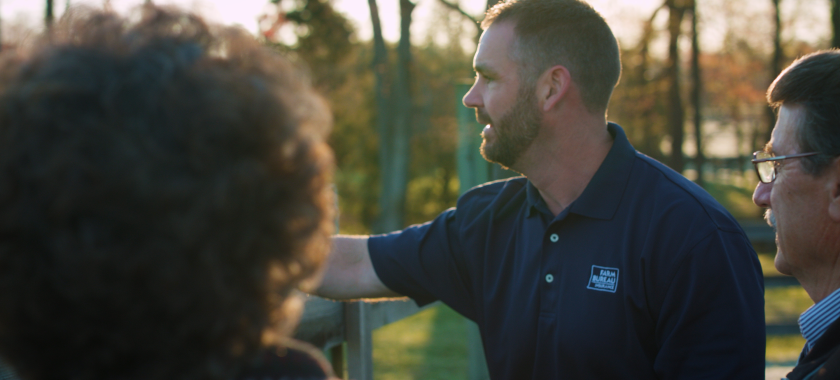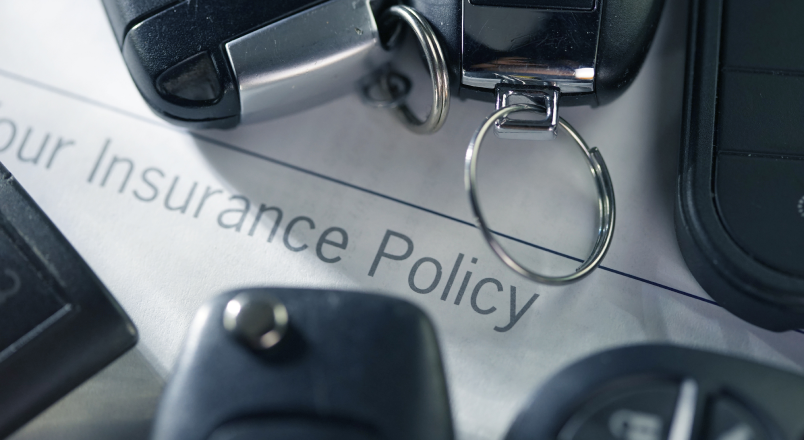Disaster Preparedness and Recovery
Keep your family safe, and prepare for catastrophes before they happen. Storm damage can be overwhelming, know where to start.
What To Do
Before a Catastrophe










Periodically review your insurance policy with your agent to make sure that you have the coverage you need. Everything that is important to you should be insured, and the coverage amounts should be sufficient to meet the cost to rebuild, and to cover the value of personal belongings, furniture, and electronics that may be more expensive to replace now, than when you first purchased insurance.



Homeowners policies do not include flood coverage. If your home is in a coastal area, you may need a separate windstorm and hail policy. Consider purchasing flood and/or windstorm and hail insurance if your home or business is vulnerable to these types of disasters. Your agent can help you determine whether purchasing a separate windstorm and hail policy is necessary.









Keep your insurance policy information in a safe, water proof location where it can be easily retrieved after a disaster. Make sure that you have your agent’s number, your policy numbers, and the companies through which your policies are issued, and that all family members know where this information is kept.



Prepare an inventory for every room. List personal belongings, valuables, household furnishings, electronics, etc. so that losses can be accurately documented. For every item, include the brand name, description, a serial number (if visible), the approximate date of purchase, and the estimated value. Take pictures of each item. Make sure that this information, whether hard copy or electronic, can be easily retrieved following the disaster.



Create an Emergency Toolkit. Use a waterproof container to store a battery-operated weather radio, flashlights, extra batteries, portable power chargers for mobile devices, over the counter and prescription medication, and a first-aid kit. Prior to the catastrophe, make sure that the supplies are fresh, and that the portable power sources are charged.



Be sure that someone in the home knows how to turn off the gas, electricity, water, and how to reinforce doors and windows.



Create a family evacuation and relocation plan and make sure that everyone in the household knows what to do. If it is decided to shelter in place, designate the safest part of your home (i.e. bathrooms or closets) to take cover.



Consider family members with medical conditions:
If someone in your home has a medical condition that may require special assistance or transport following the disaster, contact your local emergency management service to advise.
If someone in your home uses medical equipment that requires electricity, talk to a health care provider about how the equipment would be used during a power outage.









Have tools available such as tarps and plywood, etc. to cover windows before the weather catastrophe, and/or to make emergency repairs after it.



If possible, move vehicles into the garage, or park them away from trees.
Move grills, patio furniture, and potted plants into the house or garage. Anchor fuel tanks and tie down any loose items that you cannot bring indoors.



If your home or business is prone to flooding, secure outside items or move them inside to keep them from being carried away by flood waters. Move inside furniture and electrical items to a higher level.



Before a hurricane, clear debris from gutters and downspouts. This can reduce the severity of damage to your roof and the amount of water that seeps into your home.
What To Do
After a Catastrophe










If you need emergency assistance immediately following a catastrophe, call 911.



REMEMBER: Your agent is your advocate. Contact your North Carolina Farm Bureau Insurance agent as soon possible to report any losses. Even if you have a separate windstorm or hail policy along with your homeowners policy, your agent can start the loss notice process for both types of claims. If your vehicle is damaged by falling trees or debris, your auto policy will cover this if you have comprehensive coverage. Your agent can advise.



If you are temporarily relocated, be sure that your agent has all of your alternate contact information.









Even with additional adjusters who provide support following a catastrophe, it takes time to process the extraordinary number of claims that are filed. If your home has been destroyed or is unlivable, please tell your agent so that your claim will be prioritized.



If your home is unlivable, be sure to keep receipts of all expenses related to being displaced. Examples include the cost of hotel stays, meals, storage, etc. (Please Note: Loss of electricity and/or water does not qualify the home as ‘unlivable.’)



Prepare a detailed inventory of all damaged or destroyed property and keep a copy of this list for your records. The list should include a description and picture of each item; the quantity of like items if more than one; the place and date of purchase or the approximate age of the item; the cost of the item at the time of purchase; and the estimated replacement cost.
Gather receipts, invoices, or other documents that will assist the adjuster in determining values for the destroyed property.
For less significant losses, obtain a detailed estimate for permanent repairs from a reliable contractor, and give it to your agent or the adjuster when they arrive.



If your policy has a provision for food spoilage due to loss of power, make a list of all the food items contained in the refrigerator and freezer and, if possible, take photos prior to disposing of the items.



Even if belongings appear to be a ‘total loss,’ do not discard them until they have been examined by an adjuster.









Before making any repairs, take detailed pictures to document the damage.



Only make repairs that will prevent further damage to your home or business. These repairs may include covering damage to the roof, walls, or windows with waterproof material and/or removing a tree that has fallen onto the premises. Keep receipts for all expenses.



Consult with your adjuster before making any permanent repairs. Unauthorized repairs may not be reimbursed.



Retain receipts for quotes provided to estimate the extent of your damage, and for payments made to repair it.



Less significant losses do not require an on-site inspection. If you get an estimate, make sure it includes an itemized description of materials and labor costs. The estimate should also include detailed pictures of the damage.









Saturated bedding and upholstered furniture must be dried immediately. Vacuuming will remove some odor and grit left by smoke damage. Be sure to separate these items from other belongings to reduce the odor from being absorbed into those items.



Wooden furniture should be cleaned as quickly as possible. Before doing so, be sure to lightly brush away any ash, plaster, or wallboard particles that may have fallen on furniture surfaces. Rubbing these particles into the surface may damage the wood.



Contact your local dry cleaner to help determine the cleaning or restoration costs for clothing, furs, and draperies.



Metal objects, including guns, drapery rods, and the electric motors in home appliances should be dried and rubbed or sprayed with oil to prevent corrosion.



Allow stereo equipment, televisions and other electronics to dry out, but do not spray or rub them with oil.
What To Do About
Flood Damage










Contact your agent as soon as possible.



Complete temporary repairs to avoid further damage, and keep receipts for all related expenses. Before making any repairs, take detailed pictures to document the damage.









Use caution when returning to your property:
Before entering a structure that has been flooded, make sure that it is not in danger of collapsing. Let the building air out to remove foul odors or escaped gas.
When entering a flooded building, beware that there could be holes in the floor, loose boards, hanging or loose plaster, and other hazards.
Flood waters could contain toxins, snakes, insects or animals.



Throw out all food, beverages, utensils, baby supplies, and medicine exposed to flood waters and mud. If possible, take photos and make an inventory of these items prior to disposal.
Do not use water that could be contaminated to wash dishes, brush teeth, prepare food, wash hands, make ice, or to prepare baby formula.



Practice fire and electrical safety:
Do not smoke or use an open flame in the building.
Do not turn on the electrical system as it may have become short circuited.
Turn off the main electrical circuit. For your safety, stand on a dry surface and avoid touching the metal handle of the switch box. Use a piece of heavy rubber, plastic, or a piece of dry wood to open the metal door and turn off the switch.
Cut off gas and electricity. Do not touch electrical equipment if you are wet or standing in water. If you have gas service, it should be turned off at your meter, tank, or supply line.
Call your local utility if you detect any fumes.



If your vehicle has been damaged or submerged in flood water, do not attempt to start or operate the vehicle until it has thoroughly dried.



Be sure that damaged septic tanks, cesspools, pits, and leaching systems are repaired as soon as possible as damaged sewage systems are health hazards.









Wear protective clothing, including rubber gloves and rubber boots.



Upholstered furniture that has been submerged or badly damaged should be cleaned, dried and examined by an experienced upholsterer to determine the cost to repair.



Take wooden furniture outdoors and remove all drawers and moving parts. Clean off mud and dirt. Do not leave wooden furniture in the sun as it will warp.



Wall-to-wall carpets should be raised to allow air to circulate. Drapery, upholstery and clothing should be laundered.



Some items that are waterlogged cannot be cleaned or disinfected and should therefore be discarded. These items could include but are not limited to: mattresses, carpeting, cosmetics, stuffed animals, and toys. Document and take pictures of the damaged items before discarding them.



Pump or bail water out of the house over the course of a few days and shovel out mud while it is still moist. Completely pumping out the water in a short period of time, can cause structural damage.



Before the house is fully aired out, scrub all woodwork and floors with a stiff brush. Wash walls from the bottom up. Starting at the top may cause streaking.



Clean metal objects as soon as possible. This is especially true of iron, which should be cleaned with a cloth saturated with kerosene.
Other Resources

Common Questions
Questions about your bill or the claims process? Here are answers to questions that we are frequently asked.

Insurance Terms
Insurance terminology can seem complicated. This glossary might help you better understand your policy.
Contact Us

Customer Support
Our customer service team is available to answer your questions. Click below to contact us via email, or call us at (919) 782-1705 (M-F, 8:15 am – 5:00 pm, ET)
Email us: customerservice@ncfbins.com

Ask Your Agent
Our agents are always willing to help if you have any questions.

Contact Us By Mail
North Carolina Farm Bureau Insurance Group
P.O. Box 27427
Raleigh, NC 27611-7427

